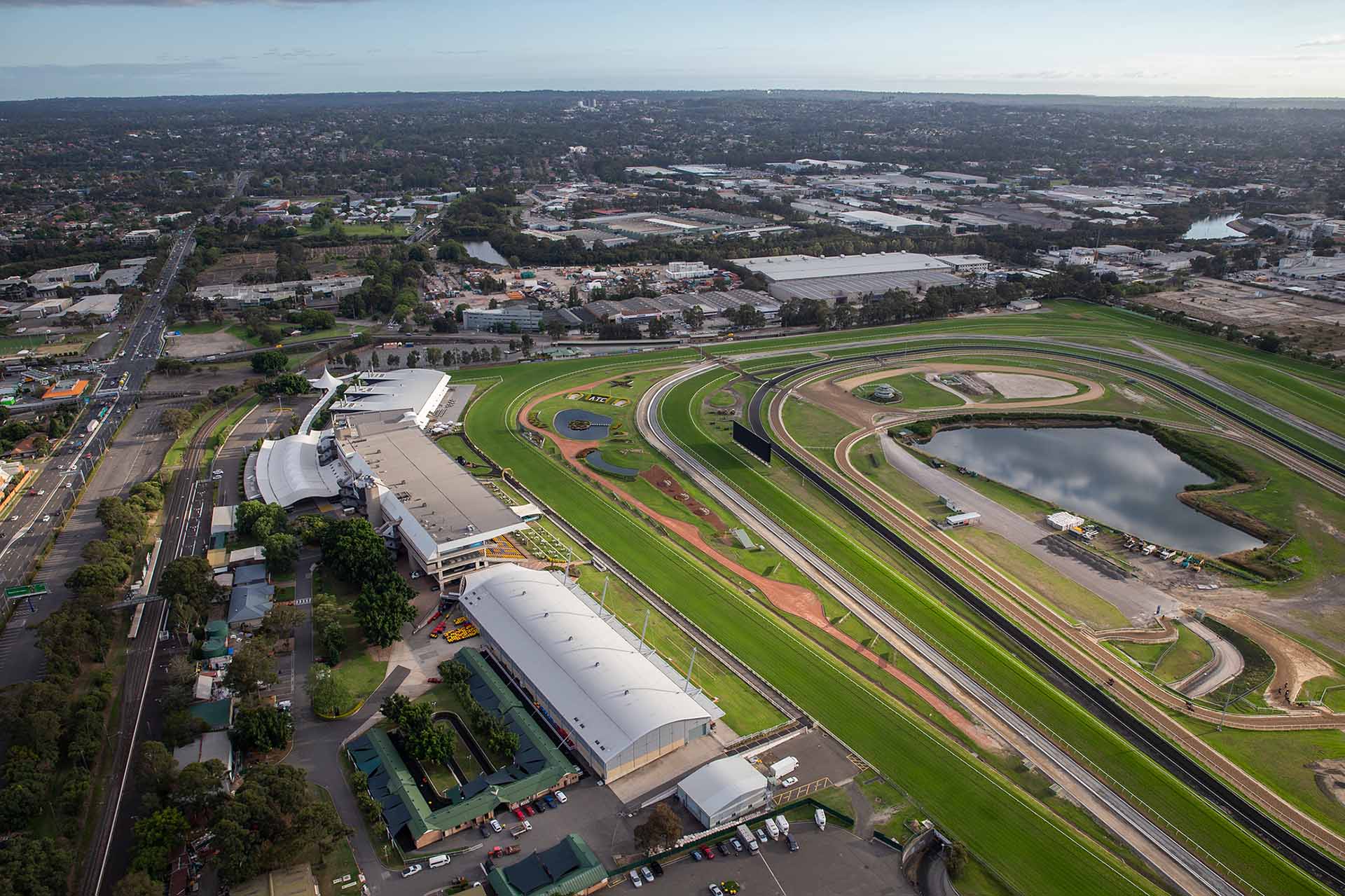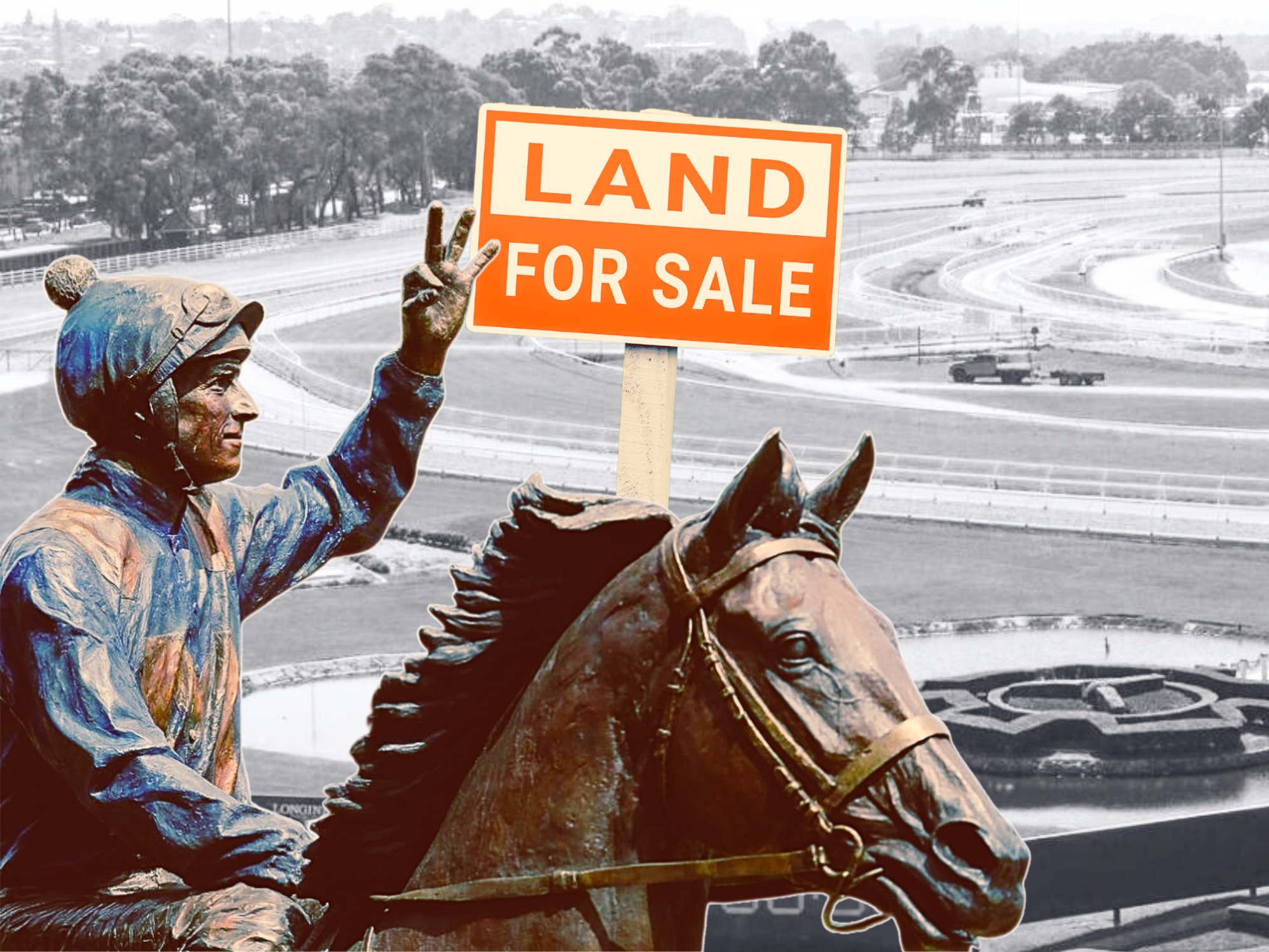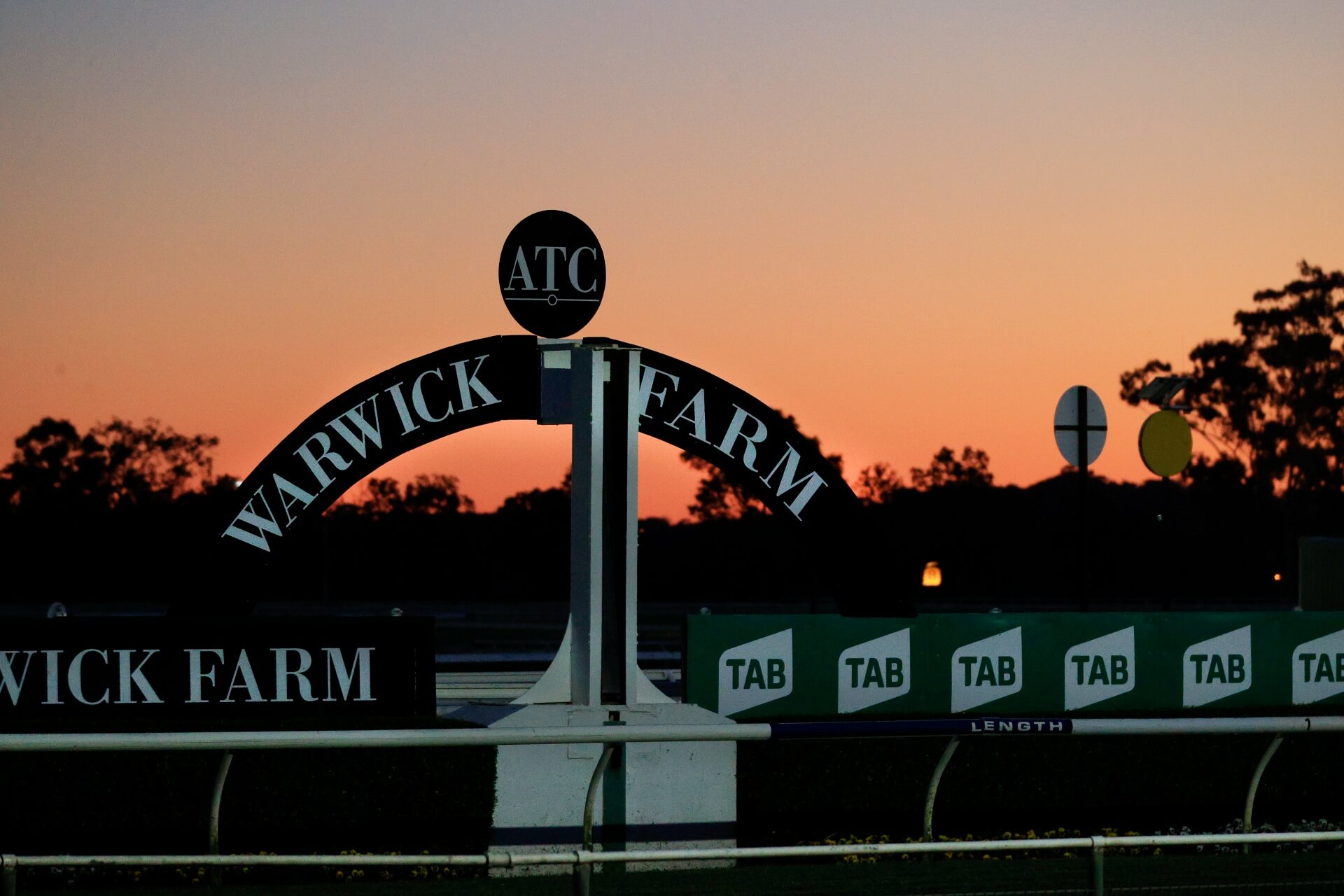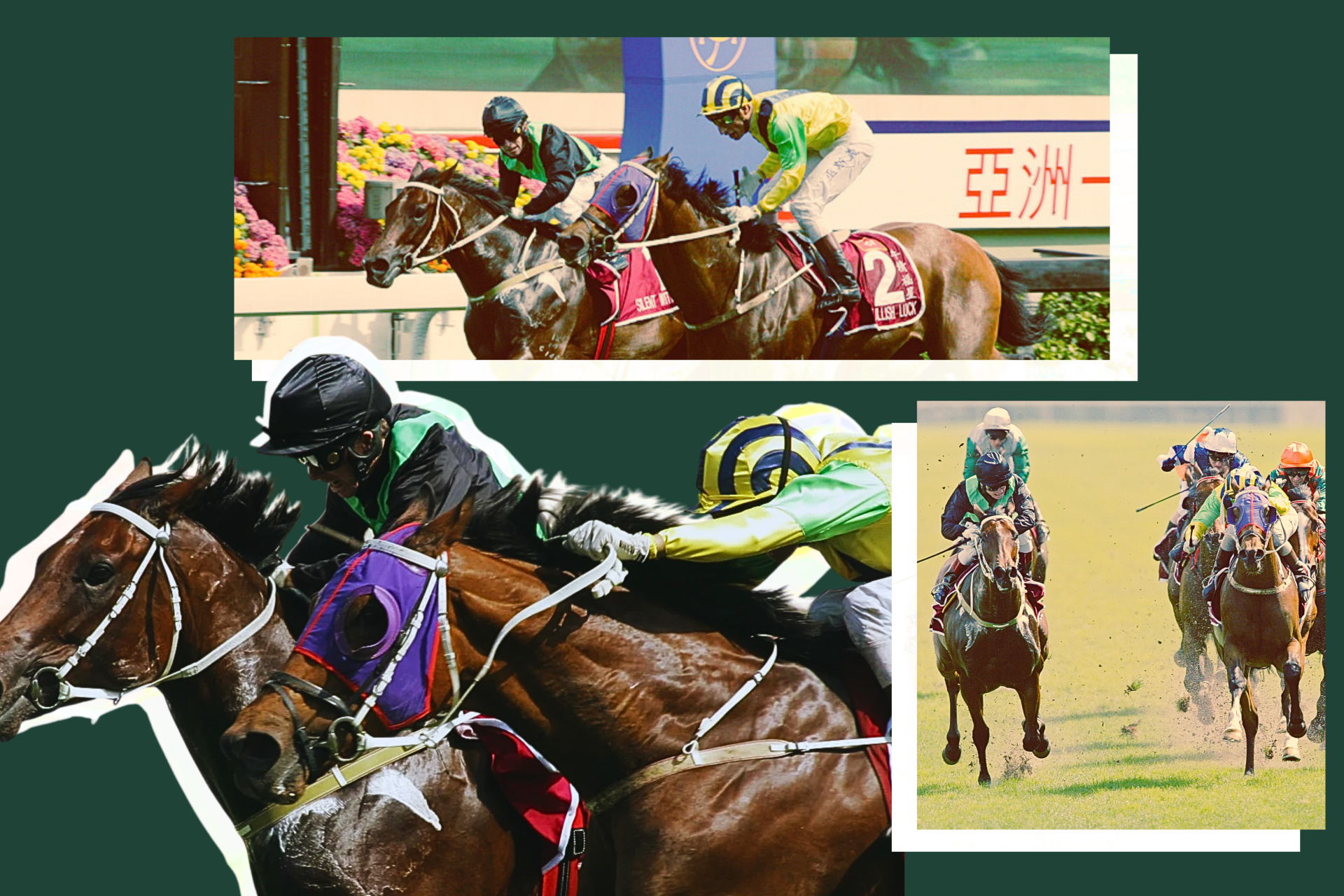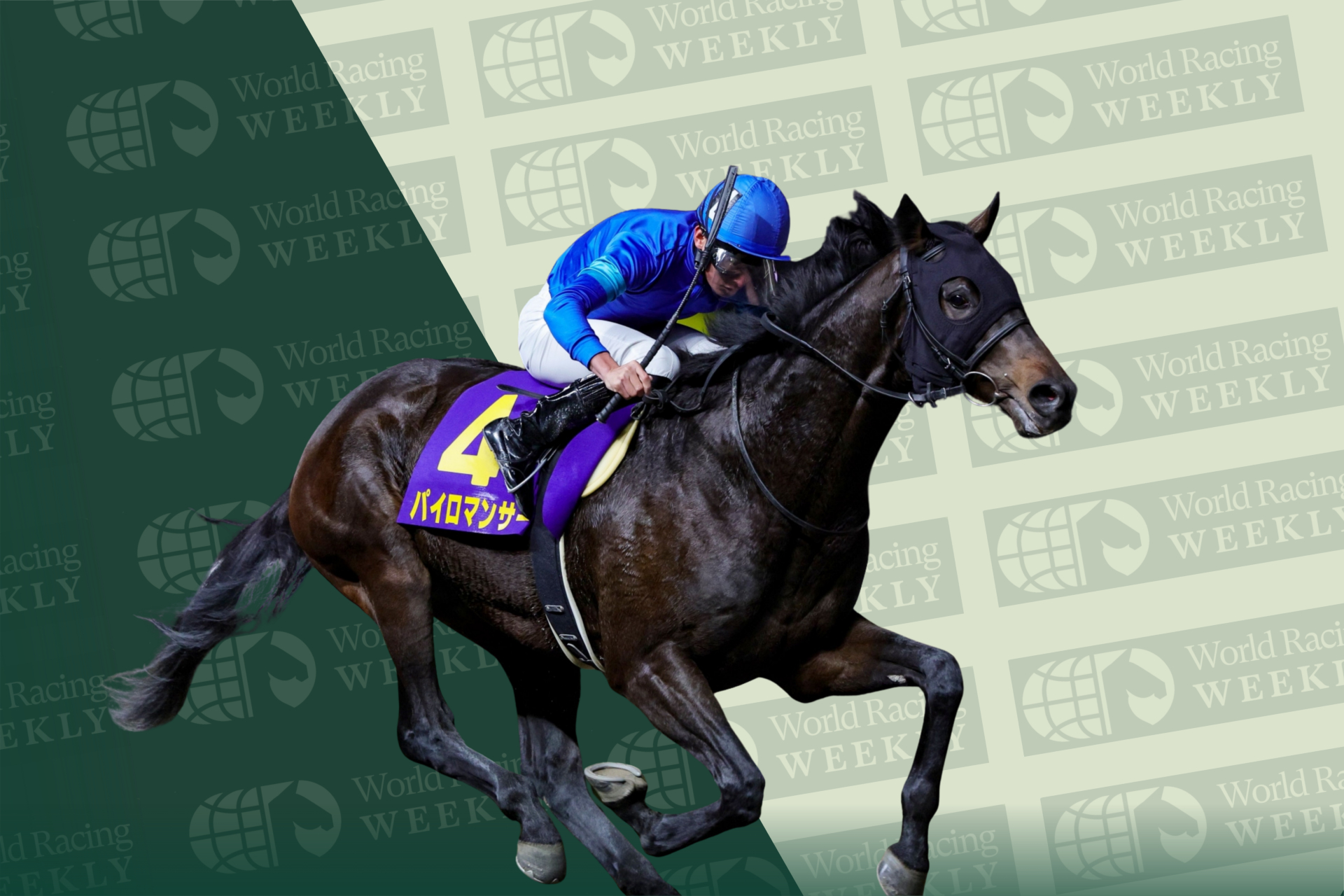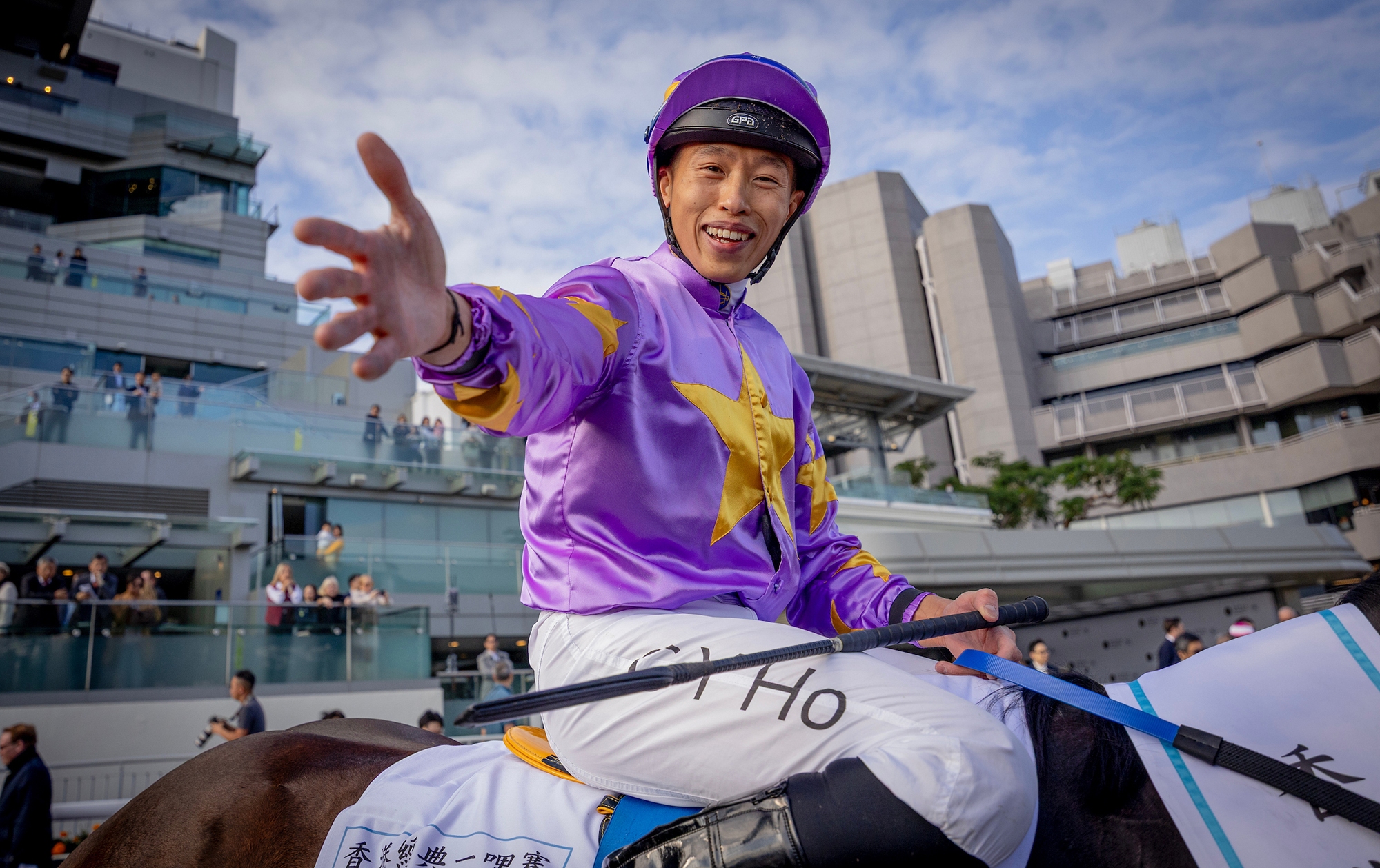It’s A No For Rosehill Sale, Now For The Brutal Post-Mortem
The failed bid to sell the racecourse at an Australian Turf Club extraordinary general meeting creates a precarious political scenario for some – and maybe even for racing itself, writes Adam Pengilly.
IT WASN’T QUITE THE white smoke emanating from the Vatican, but the fluoro yellow shoes of legendary Australian businessman John Singleton would do.
As the larrikin public figure and horse owner became the first to emerge at the top of the escalators from an upper level of Royal Randwick’s Queen Elizabeth grandstand, it was quickly clear what had been happening for the past hour – even if the votes hadn’t yet been tallied.
“I’d have a big bet,” he joked when asked whether the controversial proposal to sell Sydney’s Rosehill racecourse for $5 billion would pass Australian Turf Club (ATC) members on Tuesday.
If nothing else, Singo can read a room.
While he may have supported the plan, which has ripped Sydney racing apart for the last 18 months, not enough other members did.
By the time last rites were administered a little over an hour later, torpedoing arguably the most contentious policy put forward in modern Australian horse racing history, Singo and his funky footwear might have been home on the Central Coast.
Rosehill will not be sold, and the New South Wales (NSW) government’s ambitious plan to build a 25,000-home mini city on the century-old racetrack and home of Winx is finally dead.
A touch over 56 per cent of the ATC membership who voted on the proposal vetoed it (4413 votes to 3451). It was enough.
Jack Denham’s niece waltzed down the escalators like her uncle had won the Melbourne Cup again. Another member pumped a fist and shouted “democracy”. Out spilled politicians, old and older: maverick MP Mark Latham, former NSW opposition leader Luke Foley, both ATC members. Penrith Panthers chief executive Brian Fletcher, the boss of the four-time National Rugby League premiers, had voted.
This sorry saga is now behind them.
The ATC came closer than many thought they would, but close was never going to be enough, and the post mortem will be brutal.
“The truth of the matter is it feels like the closeness of the result makes it more difficult to take, not easier,” NSW Premier Chris Minns said.
So, why did it fail?
Ever since ATC chairman Peter McGauran and Minns strode in lockstep through Rosehill on an early summer day in late 2023 to announce an unsolicited proposal for the club’s most valuable asset to be sold and turned into homes, the horse racing industry has been on edge.
McGauran is a figure viewed with much suspicion among his membership, and the industry more broadly. A former Howard government minister, he’s a political animal who has survived his share of scraps. This one has arguably been more personal than anything he confronted in Canberra.
He was never one of the ATC-member elected directors, rather an independent government appointee, and it’s always had him on unsteady footing with those which pay their yearly dues. His long-standing friendship with Racing NSW boss Peter V’landys, although speculated to have strained at times in the past year, has also made him a figure of derision.
Lesser known is his deep connection and passion for horse racing, a former rider who grew up around thoroughbreds. He said he’ll go to the races for the rest of his life. He cares deeply about its future. He’s held the line over what has been a divisive vision, even if the easier option would have been to walk away.
Given how long he has spent around the industry, McGauran should have known horse racing participants like routine, they are resistant to change. Surprises? They hate them. They want to know what day their horses are trialling, which tracks host race meetings on what days, they want a familiar rhythm to each week, month, year. There’s even a crazy rule about trainers notifying stewards if they plan for a horse to settle a pair or two closer in the run during a race. Change has never sat well with horse racing people.
It was one thing to drop a bomb on them like the heavily curated Rosehill press conference without wider industry consultation, it was another to have next to no exhaustive detail in the months afterwards as to how the sport would adapt to losing a historic racetrack, and where it would spend the money.
“He’s pioneered it, and the whole process was upside down,” Latham said of McGauran. “A normal competent person would do 18 months of homework to get it right and then present it to the public and the membership. It’s embarrassing they didn’t have it worked out before it went public.”
The ATC was handcuffed, McGauran argues, by the confidential negotiations with the NSW government.
Filling the public vacuum while the ATC fumbled its way through a year of trying to put together a coherent strategy if the Rosehill proposal proceeded was a savvy anti-sale campaign.
Led by longtime former ATC director Julia Ritchie and the industry’s most recognisable face, Hall of Fame trainer Gai Waterhouse, they mobilised quickly and intelligently. In particular, they flooded social media to muddy the minds of members and non-members alike about the many unanswered questions if the sale were to go ahead.
When Racing NSW stepped in to use its power to delay the original Rosehill vote set down for April six days prior, arguing a lack of information was presented to members, it made the club’s handling of the whole decision process seem amateurish.
“Originally, we were told we had 85 per cent ‘No’,” Ritchie says before the first vote was voided.
Weeks later, the ATC sent a 100-plus page memo to its members explaining the machinations of the sale in far greater detail. Yes, there were still some questions arising. But putting emotion aside, it was finally a vision, with micro information, its members had been crying out for.
It also helped that they had offered inducements in terms of free membership and retail vouchers to help sway voting members, a point Waterhouse bristled at.
“You can’t be bribing people to vote ‘Yes’,” she said.
It might have swung some votes, but for sale proponents, it was all too late.
McGauran trudged alone back to the nearby ATC offices in near darkness on Tuesday, an icy wind piercing right through him, after speaking to the media. He conceded the members’ decision would stand (Rosehill’s $5 billion sale price was tied to a new Metro line being built in the tunnelling which is currently near the racecourse).

Will he stay on? Latham and Waterhouse, among others, insisted he can’t.
“No, I won’t be retiring,” McGauran rebuffed. “I serve as chairman at the pleasure of the board and that’s always within their power. But I don’t intend on resigning.
“I’m disappointed the vote wasn’t successful, but I understand why people opposed it. The funding would have transformed the entire Sydney racing scene for the next 100 years. I saw it both as an opportunity and a necessity.”
McGauran is pragmatic, and in an extensive interview with Idol Horse earlier this year, spoke about his belief horse racing had descended to the fringes of Australian culture.
Save for the phenomenon of the V’landys-driven The Everest, massive race day crowds with younger people are scarce in Australia. More concerning is young people are easily attracted to sports betting rather than complex horse racing form.
McGauran had even suggested the ATC use a portion of the massive windfall from a successful Rosehill sale to build a wing at a children’s hospital to help reclaim horse racing’s social licence. He will likely never get the chance now.
It might have escaped some, but his admission on Tuesday that the ATC had lost 4000 members in the past five years is alarming. It was obvious the large majority of the 600 people who attended the EGM (more than 7000 voted online or via proxy beforehand) were well into the back nine of life, without being disrespectful.
“I felt pretty youthful in there,” Singleton quipped. He’s 83.
Chris Waller was the only notable Sydney trainer to attend the EGM, quietly sitting at the back according to those inside the room, and even more quietly slipping away before being bounced by the media afterwards. Of nearly 30 people who got up and spoke in the room, sources said only one pushed the Yes vote.
So now the NSW racing industry must grapple with reality: it has no $5 billion panacea and the funding model is in distress. Wagering is slumping for any number of reasons – a cost-of-living crisis, heavy taxes on bookmakers, punters fed up with those equating to greater takeout rates, young gamblers migrating to other options and a fractured broadcast product. D-Day is looming.
In an interview with Idol Horse from the UK where she’s holidaying, Waterhouse insisted Racing NSW’s property buying spree around the state had to stop. She’s taken umbrage with V’landys like no other in his two-decade reign at the regulator, and wants the purse strings to be loosened and the asset acquisition ended.
“(Sydney’s four racetracks) are all in deep neglect,” she said. “They desperately need upgrading and at Randwick and Rosehill, the facilities are literally falling down around the horses. Money cannot be put into frivolous purchases by Racing NSW, they’ve got to be put into racetracks to make sure they’re at a standard that people want to visit and regularly go to. Their purchases have been totally superfluous.”
Says Ritchie: “At least it’s good for racing that we can get back on track and focus on building racing back (up). It’s been distracted for way too long. The support from the trainers has been astonishing. It’s been hanging over their head, and it means we can start planning again, but working with this board and committee. We must also look at the wider systemic issues facing our industry and use the opportunity of the review of the Racing Act to ensure our model is future proofed.”
And what about V’landys?
He was pro-sale throughout, yet largely refrained from public sentiments, apart from a grab-the-popcorn appearance at the NSW parliamentary inquiry into the sale where he and Latham, a member of the standing committee, hurled barbs at each other for an hour.
His critics, of which V’landys says are mainly “wealthy breeders”, have been emboldened by the Rosehill debate and have used it to chip away at his power base. He was too savvy to lead the charge on the Rosehill sale, largely leaving it to McGauran and ATC executive Steve McMahon, a close friend of Minns. V’landys might have been slightly scratched and bruised by the Rosehill defeat, but it will be far from terminal.
Perhaps the more pertinent question is: what upside is there for him in staying in racing’s hotseat much longer? He will know the financial reality about to descend on the sport, and without a transformational project like this to see through, will there be any risk to his legacy by staying on, especially with a full plate as Australian Rugby League Commission chairman?
An attempt to contact V’landys on Tuesday night was unsuccessful.
V’landys’ critics are urging for more government oversight of Racing NSW and the state government has confirmed a review of the Thoroughbred Racing Act will be conducted. Government interference is always a dangerous game for horse racing, particularly when younger parliamentarians are increasingly left-leaning with fringe parties and independents muscling into corridors of power.
They wouldn’t say it publicly, but racing’s administrators knew a Rosehill sale would help the NSW government score a huge political win, and give the industry a degree of autonomy to run its own affairs while being financially independent.
But from the moment Singleton charged out the doors early of a meeting like no other, it was never going to happen. In his mind, at least, racing had lost.
“(But) you’re always a loser. It’s a racetrack (after all), isn’t it?” ∎
